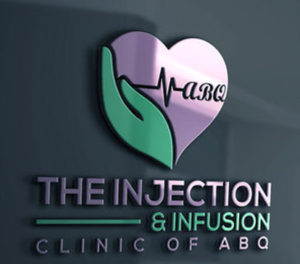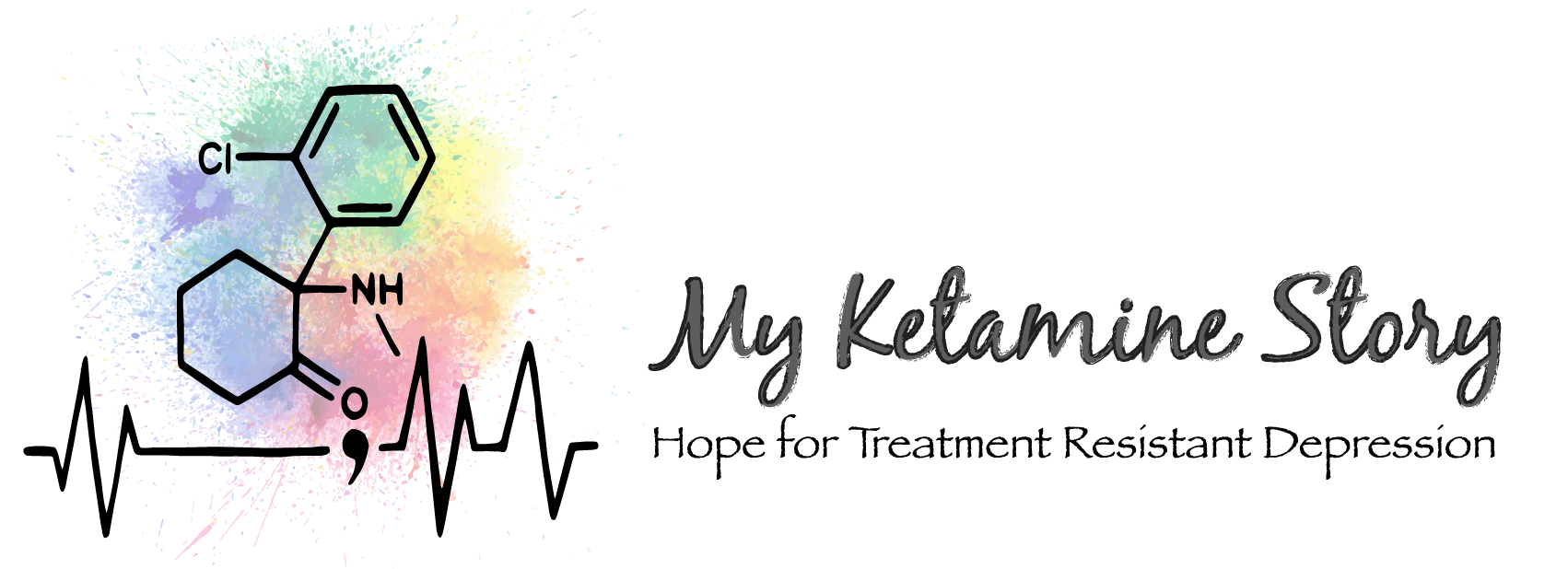Pondering Concerns & Questions: The Benefits Of Ketamine For Treatment Resistant Depression
Hello again. This is Susan from myketaminestory.com. I am once again addressing questions and concerns regarding Ketamine therapies for treating mood disorders and pain. I am writing a four part series answering questions about Ketamine use, based on my experience with Ketamine therapy over the past 2.5 years, for The Injection & Infusion Clinic of ABQ. This is the fourth and final post in my Q & A series.
My first blog, Ketamine: Addressing Questions & Concerns focused on my early experience with Ketamine Infusions. In part two of the series, Addressing Questions & Concerns About Ketamine Therapy for Treatment Resistant Depression I addressed questions and concerns about Intramuscular Ketamine verses Ketamine Infusion therapy. In my last blog, Frequently Asked Questions: Redefining Depression With The Assistance Of Ketamine Therapy, I was a bit more random. I had emails with several questions and themes and I addressed as many inquiries as I could. In my final question and answer dialogue I want to discuss research, clinical studies, and the need for changes to occur within our insurance companies and federal government so that maybe one day Ketamine will not be so difficult to afford or obtain from any qualified professional.
I will preface this series of questions with an obvious disclaimer. I am answering all the questions posed in this blog, as well as the three previously mentioned, based on personal experience with Ketamine treatments and my own continued readings. I want to advocate the use of Ketamine for Treatment Resistant Depression because of my results from the therapy. I am sharing my success and how I have benefited from Ketamine, the new form of treatment for depression.
Let’s jump right into this frustrating topic.
How long have researchers been studying the positive effects Ketamine has on mood disorders?
I am not completely sure. I think I read that in 2000, researchers started studying Ketamine as a treatment for depression. I personally was not aware of Ketamine as a medication used for Treatment Resistant Depression until 2015. I would have loved to have known about Ketamine a decade ago, but I am constantly reminded in my recovery to be grateful that my husband discovered it when he did.
It was over those 15 years that the studies and research have led us to discover that Ketamine improves the mood and does so much faster than traditional antidepressant drugs.
The clinical studies were demonstrating that not only was Ketamine reducing depression symptoms, it was also working for individuals that had exhausted all other options because traditional methods, such as ECT and antidepressant cocktails, had failed over and over again. That has been my experience; my story.
What uses have been found for Ketamine through 2017?
Ketamine has only been FDA-approved as an anesthetic for surgery and diagnostic procedures. That status has not really changed over the last few years, as some might expect, given the fact Ketamine has been featured in medical journals and news magazines.
In 2017, Ketamine is now being successfully used to treat depression, suicidal thoughts, anxiety, OCD, post traumatic stress disorder (PTSD), other mood disorders, and nerve-related pain.
So, is Ketamine FDA-approved to treat depression?
No. There is no money in it. It is a very expensive process and the drug companies won’t make any money off the drug if it is reclassified.
However, on a positive note, Ketamine is now being recognized by the American Psychiatric Association as a valid treatment for depression. The reason this is a good outcome is it has been beneficial for those providers already using Ketamine therapy to broaden their client base. I also find it helpful in advocating the use of Ketamine for Treatment Resistant Depression and Anxiety for those suffering, as well as new interest in providing this incredible therapy to more people.
Could you explain why Ketamine isn’t FDA-approved to treat depression?
I will attempt to explain what I understand about the process. In order to approve any new drug, the FDA needs evidence that it works effectively and it doesn’t cause any major harm. Typically, they determine their decision based on evidence from clinical trials involving hundreds or thousands of people.
Most of the clinical studies that have been done using Ketamine so far have been small; 25 to 50 people.
The reason larger research programs on Ketamine haven’t been done in the past is mainly because these type of clinical studies can cost millions of dollars to orchestrate.
The main issue has been that Ketamine is a generic drug. Pharmaceutical companies can’t patent it again and earn their money back from the clinical trials needed to reclassify the drug to include treating mood disorders.
However, companies are developing other drugs based on Ketamine. This is both a positive and a negative in my opinion. The main complication will be creating a pill that is so like Ketamine and continues to have no side effects. Every antidepressant I was ever on had horrific side effects. Pure Ketamine, as it is now, has no side effects. Let me correct that statement by clarifying that after 2.5 plus years of Ketamine use I have yet to show signs of any health concerns. That has never been my experience in the past, with other medications; ever. Before Ketamine, I was a frequent visitor to my family doctor due to illnesses and side effects. What is even worse, I have been in my share of emergency rooms far too many times to remember because of the medications I was prescribed for my depression and anxiety. I will never forget the pain and fear I felt when one medication cocktail had so many side effects that I was no longer capable of urinating! Seriously. It took several attempts to figure out which medication was the culprit. Once again leaving me all the more miserable and suicidal. No wonder I was initially skeptical when my husband mentioned Ketamine to me for the first time.
In August 2016, the FDA put the drug Esketamine on a fast track to approval by designating it as a breakthrough therapy. Esketamine, which is given as a nasal spray, is being tested in phase III clinical trials. Another drug that acts on NMDA receptors called Rapastinel (GLYX-13) also received breakthrough therapy status in early 2016.
My primary fear is what big pharma will unnecessarily add to their new creation when attempting to reproduce the results of Ketamine, which is already being made perfectly and inexpensively without any last side effects.
What should people consider before they try Ketamine?
I think the only worry I had when I made the appointments for my 6 Infusions in 2015 was actually a double sided fear. What if Ketamine doesn’t work for me? And the flip side of that obsessive thought was the painful terror I felt at the thought, what if Ketamine helps me and I can’t afford to continue the treatments. I was convinced it would lead me straight to my death if it didn’t work, but what if it is effective will I ever survive without it?
What would life without depression and anxiety even look like? I was pretty twisted by all my thoughts leading up to my trip to New Jersey for my six infusions.
I never believed Ketamine was a miracle cure. Never. It didn’t seem possible that after more than four decades of profound depression and anxiety six treatments could kick that evil. I knew that if Ketamine was helpful, I was going to need to find a provider closer to my home and for an affordable rate for me. I worried this would not be realistic because in 2015 options were limited. So, because of this panic I felt in the beginning, I might suggest looking into follow up care to reduce the anxiety if that is an issue for you, like it was for me.
Do you think that Ketamine therapy is a miracle cure for depression?
No. I feel Ketamine is a tool. It gives you the ability to do the work you need to do. You may have been trying repeatedly to improve your mood and situation wanting only to accomplish wellness and over the years you have failed. I feel Ketamine assists my recovery. I can see progress. When I utilize the cognitive behavior therapy (CBT) tools, I genuinely feel I am learning and improving now.
There should be some emphasis that Ketamine isn’t a quick fix. Although it can have a rapid positive effect, I don’t think enough information is given about the possibility of having to return after the first six infusions for a booster in order to continue to thrive from the benefits of Ketamine on your depression and anxiety.
People are getting the idea that Ketamine is a miracle cure. This is upsetting to me. I believe only a few people are fortunate enough to get one dose and then have their depression go away. I don’t think this is an accurate portrayal of Ketamine. It is likely that even after the six recommended infusions most will need follow up care.
The initial effects of the drug on depression can fade quickly; within 1 to 3 days. Most people need to get repeat treatments over many months or years to see long-term improvements. This has been my story.
I feel adding mindfulness training and constantly utilizing cognitive behavioral therapy tools might help the Ketamine antidepressant effects last longer. It has worked for me many, many times over the past couple years.
I am suffering with Depression and want to try Ketamine. Where can I get Ketamine?
You can get it at a Ketamine clinic. There are more than one hundred clinics around the country now, but the drug can also be administered by a medical doctor, registered nurse, nurse practitioners and physicians assistants just to name a few.
I recommend speaking to a family doctor or trusted practitioner about Ketamine and its benefits. Advocate for your health and mental well being. It will not hurt to ask for what you need. It may be frustrating trying to educate professionals, but it never stops me. This drug is changing lives and you may just find that empathetic provider willing to learn and assist you.
Ketamine is also given experimentally in clinical trials. I suggest googling Ketamine studies or clinical trails on Ketamine for TRD or mood disorders.
I have been generating a Ketamine Providers and Locations list and I update it regularly. The list can be found here and on my personal website. This list may help you find a clinic in your city or state.
In conclusion, If you know of anyone suffering with treatment resistant depression, like I do, let them know that Ketamine therapy may be an option worth looking into. It has been and continues to offer me relief from my symptoms. If you or someone you know are considering Ketamine infusion therapy, please visit www.infusionclinicabq.com for low cost ketamine infusion and injection options. If you are not in the Albuquerque, New Mexico area I also suggest approaching a local professional and start educating them on the benefits of Ketamine. Again, it doesn’t hurt to ask for what you need.
Join me again next month, when I plan to share my thoughts and experiences about how diet affects mood and possibly Ketamine therapy. I appreciate all the interest and inquiries. I really do. Thank you for reaching out. I hope others will find hope with Ketamine. I will continue to advocate Ketamine for Treatment Resistant Depression and Anxiety Disorders. It continues to work its “magic” for me every two weeks.
Originally Posted on The Injection & Infusion Clinic of ABQ


